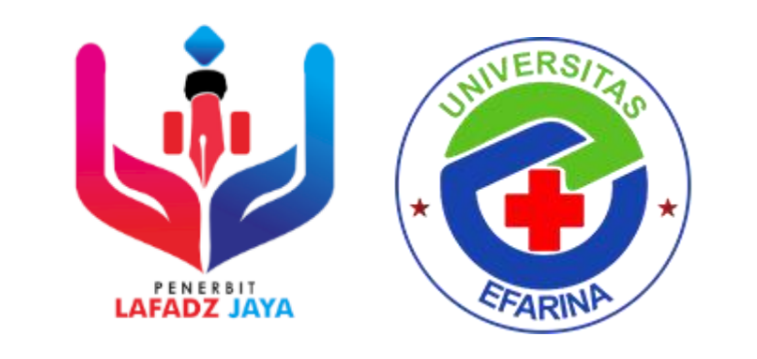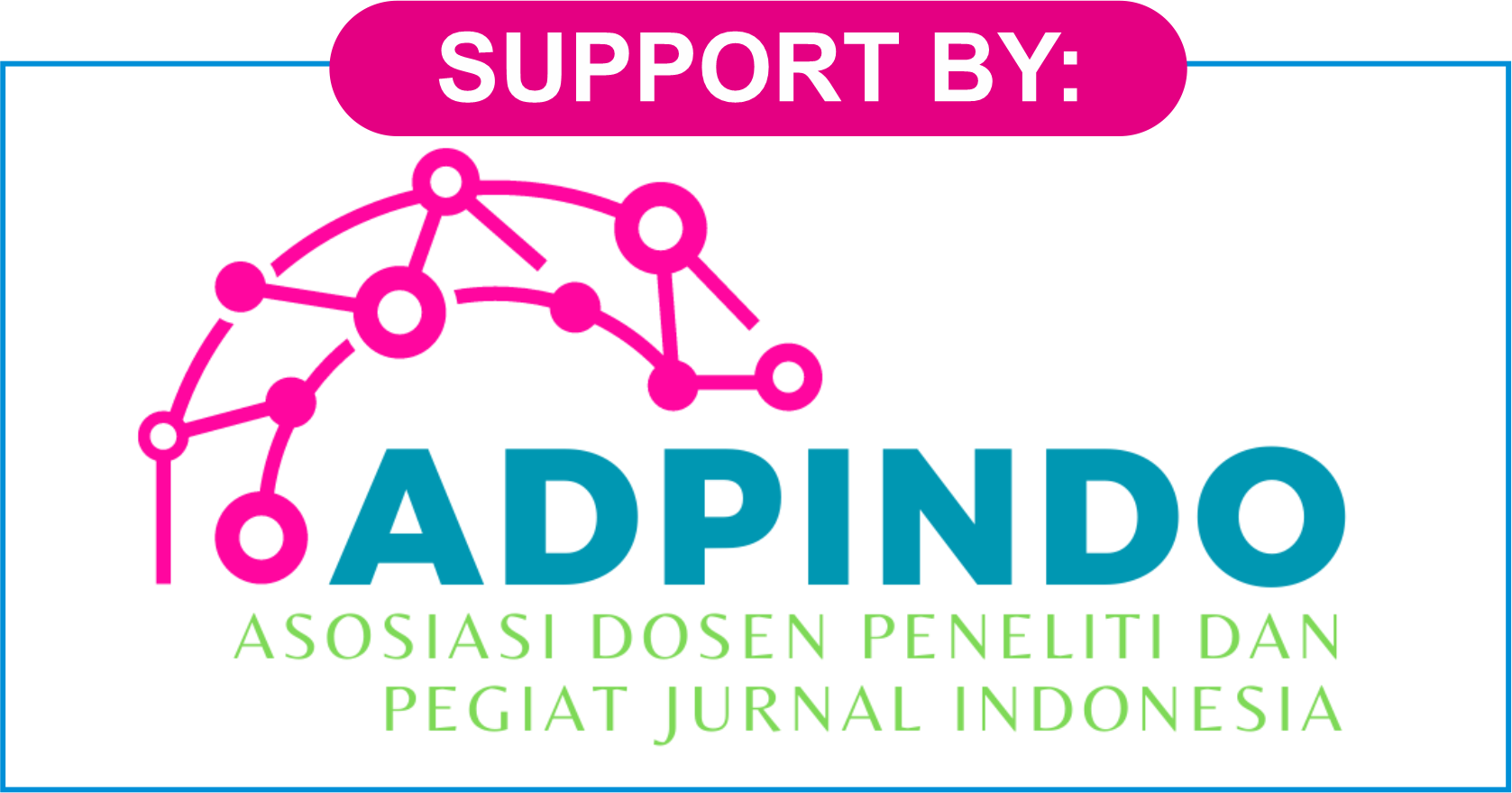HUBUNGAN KECEMASAN KARIR TERHADAP KESEJAHTERAAN PSIKOLOGIS MAHASISWA TINGKAT AKHIR
DOI:
https://doi.org/10.47353/sikontan.v2i1.1122Keywords:
kecemasan karir, kesejahteraan psikologis, mahasiswa tingkat akhirAbstract
Masalah kecemasan karir kerap kali dirasakan mahasiswa tingkat akhir. Dalam hal ini, mulai bermunculan amanat tanggung jawab baru yang mengharuskan untuk berpikir dan bersiap ke tahapan persiapan membangun karir. Hal ini menimbulkan permasalahan kecemasan karir jika tidak diimbangi dengan persiapan karir yang matang. Timbulnya kecemasan karir ini dimungkinkan memiliki hubungan dengan keenam dimensi kesejahteraan psikologis sebagai gambaran aspek kesehatan mental. Penelitian ini bertujuan untuk mengetahui apakah terdapat hubungan antara kecemasan karir dan kesejahteraan psikologis mahasiswa tingkat akhir di Fakultas Psikologi Universitas Airlangga. Penelitian ini menggunakan pendekatan kuantitatif korelasional dengan metode data survei yang disebarkan secara online. Responden dalam penelitian ini berjumlah 136 orang dengan rentang usia 21-25 tahun. Alat ukur yang digunakan menggunakan Career Anxiety Scale dan Psychological Well-Being Scale adaptasi Bahasa Indonesia. Hasil analisis data menunjukkan bahwa terdapat hubungan negatif signifikan antara kecemasan karir dengan keenam dimensi kesejahteraan psikologis dengan kekuatan hubungan cukup kuat sampai kuat, yakni kecemasan karir dan autonomy (ρ = -0,400**), kecemasan karir dan environmental mastery (r = -0,538**), kecemasan karir dan personal growth (r = -0,345), kecemasan karir dan positive relationship with others (ρ = -0,375**), kecemasan karir dan purpose in life (r = -0,327**) dan kecemasan karir dan self-acceptance (r = -0,322**).
Downloads
References
Ali, U., & Shah, E. (2013). Career Decision Difficulty as a Predictor of Environmental Mastery and Self Esteem in College Students. Procedia - Social and Behavioral Sciences, 84, 1119–1123. https://doi.org/10.1016/j.sbspro.2013.06.711
Ambarwati, P. D., Pinilih, S. S., & Astuti, R. T. (2019). GAMBARAN TINGKAT STRES MAHASISWA. Jurnal Keperawatan Jiwa, 5(1), Article 1. https://doi.org/10.26714/jkj.5.1.2017.40-47
Arjanggi, R., Hartono, H., & Suprihatin, T. (2022). Studi Korelasi Antara Efikasi Diri Terhadap Keputusan Karir Dengan Keraguan Karir Pada Siswa Sekolah Menengah Atas. Sang Pencerah: Jurnal Ilmiah Universitas Muhammadiyah Buton, 8(2), Article 2. https://doi.org/10.35326/pencerah.v8i2.2076
Arnett, J. J. (2014). Emerging adulthood: The winding road from the late teens through the twenties (Second Edition). Oxford University Press.
Baiti, R. D., Abdullah, S. M., & Rochwidowati, N. S. (2018). Career Self-Efficacy Dan Kesiapan Kerja Pada Mahasiswa Semester Akhir. Jurnal Psikologi Integratif, 5(2), Article 2. https://doi.org/10.14421/jpsi.2017.%x
Cheung, C.-K., Cheung, H. Y., & Wu, J. (2014). Career unreadiness in relation to anxiety and authoritarian parenting among undergraduates. International Journal of Adolescence and Youth, 19(3), 336–349. https://doi.org/10.1080/02673843.2014.928784
Daniels, L. M., Stewart, T. L., Stupnisky, R. H., Perry, R. P., & LoVerso, T. (2011). Relieving career anxiety and indecision: The role of undergraduate students’ perceived control and faculty affiliations. Social Psychology of Education, 14(3), 409–426. https://doi.org/10.1007/s11218-010-9151-x
Darwish, M. A. A., Banat, S. M., Sarhan, W. Y., & Aleid, W. A. (2021). Future Career Anxiety and Its Relationship with Marital Distress Among the Al-Hussein Bin Talal University Students. Iranian Journal of Psychiatry and Behavioral Sciences, 15(1), Article 1. https://doi.org/10.5812/ijpbs.101398
Keane, C., Waldeck, D., Holliman, A., Goodman, S., & Choudhry, K. (2021). Exploring the Experience of Anxiety Among Final Year Students at University: A Thematic Analysis. The Qualitative Report, 26(8), 0_1,2621-2630. https://doi.org/10.46743/2160-3715/2021.4874
Kim, Y. H., Demirer, I., Josiam, B., & Gultek, M. M. (2023). Student’s Career Expectations in the Hospitality and Tourism Industry: An Examination of Student’s MACE (Motivation, Attitude, and Career Expectation) Model. Journal of Hospitality & Tourism Education, 0(0), 1–12. https://doi.org/10.1080/10963758.2023.2191324
Konstam, V., Celen-Demirtas, S., Tomek, S., & Sweeney, K. (2015). Career Adaptability and Subjective Well-Being in Unemployed Emerging Adults: A Promising and Cautionary Tale. Journal of Career Development, 42(6), 463–477. https://doi.org/10.1177/0894845315575151
Luthans, F., & Broad, J. D. (2022). Positive Psychological Capital to Help Combat the Mental Health Fallout from The Pandemic and VUCA Environment. Organizational Dynamics, 51(2), 100817. https://doi.org/10.1016/j.orgdyn.2020.100817
Miles, M. M., Szwedo, D. E., & Allen, J. P. (2018). Learning to cope with anxiety: Long‐term links from adolescence to adult career satisfaction. Journal of Adolescence, 64(1), 1–12. https://doi.org/10.1016/j.adolescence.2018.01.003
Mohammed, Z., Kumar, S., & Padakannaya, P. (2021). Well-being and Career Decision-making Difficulties Among Master’s Students: A Simultaneous Multi-Equation Modeling. Cogent Psychology, 8(1), 1996700. https://doi.org/10.1080/23311908.2021.1996700
Morales-Rodríguez, F. M., Espigares-López, I., Brown, T., & Pérez-Mármol, J. M. (2020). The Relationship between Psychological Well-Being and Psychosocial Factors in University Students. International Journal of Environmental Research and Public Health, 17(13), Article 13. https://doi.org/10.3390/ijerph17134778
Nugroho, S. A. (2021). Pengaruh Career Adaptability Dan Psychological Capital Terhadap Self-Perceived Employability Pada Mahasiswa Tingkat Akhir Fakultas Psikologi Universitas Airlangga [Universitas Airlangga]. http://ir.unair.ac.id/uploaded_files/temporary/DigitalCollection/MjVmN2NjZTM3YTc1MjZiMWFjNGMxOGVlYzA2YmNlMzY1MzAyNDYwNQ==/index.html
Paech, J., Schindler, I., & Fagundes, C. P. (2016). Mastery matters most: How mastery and positive relations link attachment avoidance and anxiety to negative emotions. Cognition and Emotion, 30(5), 1027–1036. https://doi.org/10.1080/02699931.2015.1039933
Peterson, S. J., Luthans, F., Avolio, B. J., Walumbwa, F. O., & Zhang, Z. (2011). Psychological Capital and Employee Performance: A Latent Growth Modeling Approach. Personnel Psychology, 64(2), 427–450. https://doi.org/10.1111/j.1744-6570.2011.01215.x
Pisarik, C. T., Rowell, P. C., & Thompson, L. K. (2017). A Phenomenological Study of Career Anxiety Among College Students. The Career Development Quarterly, 65(4), 339–352. https://doi.org/10.1002/cdq.12112
Prasetyo, A. P. L. (2020). Pengaruh Partisipasi Aerobic Exercise Terhadap Psychological Well Being Pada Dewasa Awal Yang Sudah Bekerja [Skripsi, UNIVERSITAS AIRLANGGA]. https://doi.org/10/10.%20LAMPIRAN.pdf
Rachmayani, D., & Ramdhani, N. (2014). Adaptasi Bahasa dan Budaya Skala Psychological Well-Being.
Rahimi, R., Akgunduz, Y., & Bilgihan, A. (2022). Impact of COVID-19 on mental health and career anxiety of hospitality and tourism students in the UK. Journal of Hospitality and Tourism Insights, 6(2), 892–911. https://doi.org/10.1108/JHTI-05-2021-0129
Rahmadani, R., & Sahrani, R. (2021). The Role of Stress During the COVID-19 Pandemic in the Future Career Anxiety of Final-Year Students: International Conference on Economics, Business, Social, and Humanities (ICEBSH 2021), Jakarta, Indonesia. https://doi.org/10.2991/assehr.k.210805.154
Rief, W., & Anna Glombiewski, J. (2017). The role of expectations in mental disorders and their treatment. World Psychiatry, 16(2), 210–211. https://doi.org/10.1002/wps.20427
Ryff, C. D., & Keyes, C. L. M. (1995). The structure of psychological well-being revisited. Journal of Personality and Social Psychology, 69(4), 719–727. https://doi.org/10.1037/0022-3514.69.4.719
Ryff, C. D., & Singer, B. (1996). Psychological Weil-Being: Meaning, Measurement, and Implications for Psychotherapy Research. Psychotherapy and Psychosomatics, 65(1), 14–23. https://doi.org/10.1159/000289026
SAFITRI, P. (2017). Hubungan Kecemasan dengan Psychological Well-Being Sarjana S1 dalam Menghadapi Dunia Kerja [Skripsi, Universitas Islam Negeri Sultan Syarif Kasim Riau]. https://doi.org/10/11.%20DAFTAR%20PUSTAKA.pdf
Santo, A. T., & Alfian, I. N. (2021). Hubungan Dukungan Sosial dan Kecemasan dalam Menghadapi Dunia Kerja pada Mahasiswa Akhir. Buletin Riset Psikologi dan Kesehatan Mental (BRPKM), 1(1), 370–378. https://doi.org/10.20473/brpkm.v1i1.24895
Saputra, M. R. (2020). Hubungan Dukungan Sosial Dan Psychological Well-Being Pada Mahasiswa Yang Sedang Menempuh Skripsi Di Universitas Airlangga [Skripsi, UNIVERSITAS AIRLANGGA]. https://doi.org/10/10.%20LAMPIRAN.pdf
Şeker, G. (2020). Well-Being and Career Anxiety as Predictors of Career Indecision. https://doi.org/10.9779/pauefd.706983
Sharone, O. (2017). LinkedIn or LinkedOut? How Social Networking Sites are Reshaping the Labor Market. In Emerging Conceptions of Work, Management and the Labor Market (Vol. 30, pp. 1–31). Emerald Publishing Limited. https://doi.org/10.1108/S0277-283320170000030001
Strauser, D. R., Lustig, D. C., & Çiftçi, A. (2008). Psychological Well-Being: Its Relation to Work Personality, Vocational Identity, and Career Thoughts. The Journal of Psychology, 142(1), 21–35. https://doi.org/10.3200/JRLP.142.1.21-36
Teng, C. W. C., Lim, R. B. T., Chow, D. W. S., Narayanasamy, S., Liow, C. H., & Lee, J. J.-M. (2022). Internships before and during COVID-19: Experiences and perceptions of undergraduate interns and supervisors. Higher Education, Skills and Work-Based Learning, 12(3), 459–474. https://doi.org/10.1108/HESWBL-05-2021-0104
Tsai, C.-T. (Simon), Hsu, H., & Hsu, Y.-C. (2017). Tourism and Hospitality College Students’ Career Anxiety: Scale Development and Validation. Journal of Hospitality & Tourism Education, 29(4), 158–165. https://doi.org/10.1080/10963758.2017.1382365
Widyastuti, A. S. (2021). DUKUNGAN SOSIAL ORANG TUA DAN KECEMASAN TERHADAP KARIR MASA DEPAN PADA MAHASISWA TINGKAT AKHIR DI YOGYAKARTA. https://dspace.uii.ac.id/handle/123456789/31776
Wilkes, J., Garip, G., Kotera, Y., & Fido, D. (2022). Can Ikigai Predict Anxiety, Depression, and Well-being? International Journal of Mental Health and Addiction. https://doi.org/10.1007/s11469-022-00764-7
Witte, H. D. (1999). Job Insecurity and Psychological Well-being: Review of the Literature and Exploration of Some Unresolved Issues. European Journal of Work and Organizational Psychology, 8(2), 155–177. https://doi.org/10.1080/135943299398302
Zhao, X. (2021). Auditing the “Me Inc.”: Teaching personal branding on LinkedIn through an experiential learning method. Communication Teacher, 35(1), 37–42. https://doi.org/10.1080/17404622.2020.1807579
Zulfahmi, A., & Andriany, D. (2021). Kematangan vokasional dengan kecemasan dalam menghadapi dunia kerja pada mahasiswa tingkat akhir. Cognicia, 9(2), Article 2. https://doi.org/10.22219/cognicia.v9i2.15728
Downloads
Published
How to Cite
Issue
Section
License
Copyright (c) 2023 Frischa Futichatul Maghfiroh, Triana Kesuma Dewi

This work is licensed under a Creative Commons Attribution 4.0 International License.











